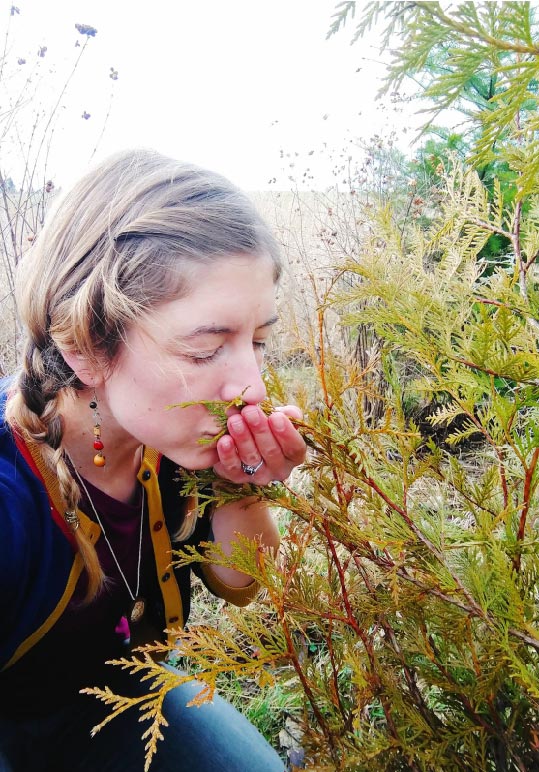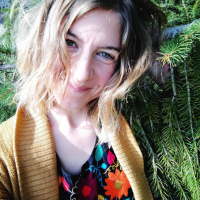At a party recently, I found myself chatting with another woman about the kinds of questions we get asked in social settings.
She is gay, married, and has one child. I am straight, married, and have no children. She told me she’s often asked, “Which one of you is the guy?” in her marriage, as if this were an acceptable (not to mention, woefully ignorant) question. I told her I’m often asked, “Why don’t you have children?”
“Why is it,” I wondered aloud, “that women are asked to explain why we don’t have children but no one ever asks a woman to defend why she does?” How many assumptions are contained within that one, so-called innocuous question?
I didn’t realize how different I was until college.
While my friends dissolved into cooing around babies and talked of their dreams of motherhood, I sat quietly observing and feeling nothing but ambivalence toward babies and deep affection for animals. I dismissed this, however, as an issue of timing. My “biological clock” must be ticking slower than theirs, I thought. One day, I’ll feel this, too. One day, my desire will kick in.
It has to, I told myself.
I didn’t feel I had been given any alternative to being a mother. It was a given, and still is in many ways, that women will get married, get pregnant, and raise children. I may have marched to the beat of my own drum in small ways, but I always made sure my beat was acceptable within the larger marching band.
And within the larger band, specifically the Christian culture I had been part of my entire life, choosing to be child-free was not an acceptable option. It was indirectly implied, more than anything, that for a married couple not to have children when physically able—and this was the only context in which to discuss motherhood—would be selfish. An abdication of responsibility. A rejection of a sacrament.
I grew up hearing, “There is no higher calling than being a mother.”
I absorbed this viewpoint over several decades—before understanding how it had convinced me my wholeness as a woman was predicated upon this initiation. I was told I’d regret not being a mother; that I’d never experience a love as deep and selfless as that of a mother for her child; that without this, I’d never fully mature.
So, it wasn’t until after I married—in my early 30s, no less—that the anxiety began to intensify. My husband and I didn’t exactly have “all the time in the world” to put off having children, and we had always agreed that we would, one day.
“I’m not sure when I’ll be ready,” I’d confessed to him. “But I’m sure I’ll know it when I feel the desire to be a mom. It’s just taking time for me to get there.”
As time passed, I began to suspect with growing dread what my heart must have known all along, if I’d only known how to trust it: I didn’t want children.
This admission came, at first, like a knife peeling back a layer of skin. When I could finally speak it aloud, it was for my ears only. I practiced speaking this, again and again, until it began to settle in my skin. But I was frightened as hell of having this conversation with my husband. What if I wasn’t enough? I couldn’t deny him the experience of having children if this was something he didn’t feel he could live without, yet I couldn’t agree to become a mother only for this reason.
What if I lost him?
When I took the plunge, it was one of the scariest conversations I’d had. It was one of many, and it was not without pain. But almost eight years later, we’re still married. So, we’ve obviously figured a few things out along the way.
We’re still figuring things out.
I wish people recognized and valued the different faces and expressions of motherhood. The women who give birth to babies. The women who lose babies. The women who give babies up. The women who adopt babies. The women who take care of other peoples’ babies. The women who raise their baby’s babies.
But also, the women who rescue cats and dogs, horses and goats, guinea pigs and pot-bellied pigs. The women who rehabilitate wildlife. The women who plant trees, restore streams for salmon, tend gardens, and grow food from the soil. The women who stand in front of coal trains and chain themselves to oil pipelines, who put their bodies on the line for future generations of unborn children and animals and Earth herself. The women who give birth to written stories, songs, works of art, community projects, and lifelong dreams.
These women are all mothers.
I knew I didn’t want to have children before “climate crisis” and “ecological grief” were words in my vocabulary. For an increasing number of millennials, this is reason enough for them to make the painful choice not to have children. Many women don’t want to bring a child into a world that is becoming less habitable at an alarming rate. No one wants to hand their child a dying planet or a shortened lifespan.
The reality of our planet’s climate crisis was not my driving reason for why I don’t want children, but it is my reinforcer for why I wouldn’t have children even if I wanted to. This is not a judgment on any other woman’s choices. We each have to choose what we can and cannot live without, and this is my choice. It’s a far easier choice for me than it is for the majority of women who do deeply desire to bring children into the world. And for some women, it is not a “choice” they feel they’ve been given, be it through infertility, chronic illness, miscarriage, marital status, sexual orientation, or existential conscience.
It is not a position that needs to be defended, on either side, to anyone other than ourselves—should we need convincing of our own hearts.
But make no mistake, this choice of mine is far more complex than “I just don’t want the responsibility” or “I don’t want to be tied down.”
I’ve chosen my responsibilities with as much, and in some cases more, intention than many women choose to bear children. I know how hard it is for me to invest my heart and my energies fully when they’re divided. I know so many women who are heroically amazing at this—being active in the world and being actively present as mothers of children—but I am not one of them.
I know myself. And in that knowing, I’m aware I wouldn’t be able to care for other-than-human beings the way that I do, with the same depth of love and fierce commitment as a mother, if I had a child to care for. I would be torn, and I don’t handle torn very well.
So, no. I didn’t choose “no responsibilities;” I chose different priorities. Not “better” priorities or “lesser” priorities, just priorities that are authentic, intentional, and wholly gratifying to me.
It took me over 30 years, but I embrace this part of me now. I celebrate my own version of motherhood.
When I lovingly caress the buds at the ends of branches, when I press kisses on the distressed boughs of cedars, when I press my forehead against aged trunks and transmit my gratitude, I am a mother.
When I jump into cold creek water, wading out in clothes to help a gull tangled in fishing line, or when I slosh through ponds to retrieve discarded trash, I am a mother.
When I keep a steady supply of sugar water on rotation for the hummingbirds, or when I choose to buy birdseed over something else I may need, I am a mother.
When I get up in the night at my sugar gliders’ cries, or when I surrendered our much-loved tortoise so she could have a better quality of life somewhere else, I am a mother.
When I notice dead songbirds and give them funerals draped in wildflowers, I am a mother.
When I sit in the tall grass of a field at sunset and sing the day to rest, or when I water the earth with my tears, again and again, as I pour out my grief and abiding love, I am a mother.
I am a mother in the way I was always meant to be. And I can only wish that every woman finds this in her lifetime, however this may be fleshed out in the world and in her own unique and beautiful story.
There are as many different embodiments of “mother” as there are women in the world. This is something worth celebrating. By recognizing these different forms of mothering, we’re not diminishing the beauty of traditional motherhood. There’s enough appreciation to go around for each woman and womxn who is, in truth, a mother.







Read 55 comments and reply